★★★
“Top of the world.”
 Reaching the summit of Mount Everest once is a remarkable achievement, done by only a few thousand people in history, with hundreds having died in the attempt. But what about climbing the world’s highest peak on no less than ten occasions? Such is the achievement of Lhakpa Sherpa, a woman from Nepal who had to overcome remarkable adversity in a number of ways to complete this feat. This documentary is the story, both of her tenth (and most recent, to date at least!) ascent, and of her life. It’s an impressive story of fortitude, though never really answers my most burning question. I can understand wanting to climb Everest once. But why do it so many times?
Reaching the summit of Mount Everest once is a remarkable achievement, done by only a few thousand people in history, with hundreds having died in the attempt. But what about climbing the world’s highest peak on no less than ten occasions? Such is the achievement of Lhakpa Sherpa, a woman from Nepal who had to overcome remarkable adversity in a number of ways to complete this feat. This documentary is the story, both of her tenth (and most recent, to date at least!) ascent, and of her life. It’s an impressive story of fortitude, though never really answers my most burning question. I can understand wanting to climb Everest once. But why do it so many times?
Lhakpa was born in 1973, and grew up when girls weren’t allowed to go to school. She carried her brother there, two hours each way, but wasn’t allowed to learn herself. This didn’t stop her from breaking with local tradition in a number of ways. She had a child outside of wedlock, and also became a mountain porter as a teenager, another position reserved for men – she cut her hair short, so her gender would be less apparent. In 2000, she became the first Nepalese woman to reach the top of Everest and survive. The same year, she met climber Gheorghe Dimarescu and the pair married in 2002. They climbed together, and had two daughters, Sunny and Shiny. But there was a dark side, with her husband’s vicious temper turning their relationship abusive, until she left him in 2012.
I do feel the film rather overplays this element of Lhakpa’s life. While it’s obviously significant, it almost seems to robs her of agenda, forcing the viewer to see much of the events through the lens of his behaviour. The structure may enhance this. Rather than unfolding chronologically, there are two parallel streams, one depicting her tenth attempt to reach the top, while the other slowly fills in the background of her life, and the two never quite seemed to mesh effectively for me. Her attitude in dealing with life’s obstacles is amazing, and leave a remarkable impression, such as how Lhakpa worked in a Connecticut supermarket, while raising her two daughters, before returning to her home country.
It does appear her profile has been raised by her remarkable, and largely under the radar, achievements. The documentary shows her finding a sponsor who will fund expeditions: I don’t know if she still works in Whole Foods! I hope not, because she deserves better, with the simple facts of her story being immensely empowering to anyone, and a lesson that any dream can be achieved. But I did not feel that this film really provided much more insight into the person, than a reading of her Wikipedia page would have offered. I was left with questions, such as about her first child, which the film didn’t want to address, and it felt like some outside viewpoints (even Lhakpa’s family) would have benefited the end product. It remains worth a watch: just don’t expect more than a surface portrait.
Dir: Lucy Walker
Star: Lhakpa Sherpa, Sunny Dijmarescu, Shiny Dijmarescu





 This is one of the more successful efforts to spin a conspiratorial narrative – at least until the final act, where it topples over into implausibility. It’s a bit like how QAnon were not wrong about the rich and powerful being involved in sex trafficking… it just wasn’t out of the basement of a pizza restaurant. The heroine here is Sofia (Gudic), a journalist who is investigating a series of odd murders, in which powerful men are killed in highly compromising positions. These are assassinations carried out by an escort-assassin, Theda – yeah, one of the less subtle anagrammatic names I’ve seen – on behalf of a shadowy, super-powerful group of the wealthy and famous, under the oversight of Zane (Cassavetes).
This is one of the more successful efforts to spin a conspiratorial narrative – at least until the final act, where it topples over into implausibility. It’s a bit like how QAnon were not wrong about the rich and powerful being involved in sex trafficking… it just wasn’t out of the basement of a pizza restaurant. The heroine here is Sofia (Gudic), a journalist who is investigating a series of odd murders, in which powerful men are killed in highly compromising positions. These are assassinations carried out by an escort-assassin, Theda – yeah, one of the less subtle anagrammatic names I’ve seen – on behalf of a shadowy, super-powerful group of the wealthy and famous, under the oversight of Zane (Cassavetes). Eden Murphy (Miller) has a problem. She desperately wants to get into Pembroke College, but is currently on the wait list. However, classmate Barrett Schroder (Heller) has a congressman for a father, a letter from whom would surely push her application forward. Barrett isn’t exactly helpful, so along with friend Zara (Milliner), she crashes his party, hoping to press her case. A series of events ensue, resulting in Eden being trapped in a bedroom with a passed-out drunk Zara, and a phone belonging to one of Barrett’s friends, Gooch (Deusner). This has some incriminating video footage on it, apparently linking Barrett to the recent disappearance of another classmate. He is
Eden Murphy (Miller) has a problem. She desperately wants to get into Pembroke College, but is currently on the wait list. However, classmate Barrett Schroder (Heller) has a congressman for a father, a letter from whom would surely push her application forward. Barrett isn’t exactly helpful, so along with friend Zara (Milliner), she crashes his party, hoping to press her case. A series of events ensue, resulting in Eden being trapped in a bedroom with a passed-out drunk Zara, and a phone belonging to one of Barrett’s friends, Gooch (Deusner). This has some incriminating video footage on it, apparently linking Barrett to the recent disappearance of another classmate. He is 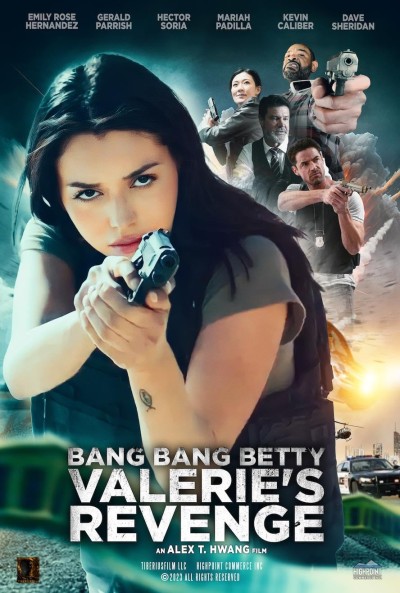 This one ends by informing us definitively that “Bang Bang Betty will return.” The statement may cause some confusion to viewers in this installment, because Bang Bang Betty is not present to begin with. No, this sequel to
This one ends by informing us definitively that “Bang Bang Betty will return.” The statement may cause some confusion to viewers in this installment, because Bang Bang Betty is not present to begin with. No, this sequel to  Reviewing director Profitt’s filmography on the IMDb is an interesting experience. He seems to have started off in the paranormal, drifted through pseudo-reality TV with titles like Untold Undercover Police Stories, and has now found a niche in the low-budget urban gangster field, for which Tubi seems to have an inexhaustible appetite. But the promise very much exceeds the product. Case in point: while the woman on the cover here
Reviewing director Profitt’s filmography on the IMDb is an interesting experience. He seems to have started off in the paranormal, drifted through pseudo-reality TV with titles like Untold Undercover Police Stories, and has now found a niche in the low-budget urban gangster field, for which Tubi seems to have an inexhaustible appetite. But the promise very much exceeds the product. Case in point: while the woman on the cover here 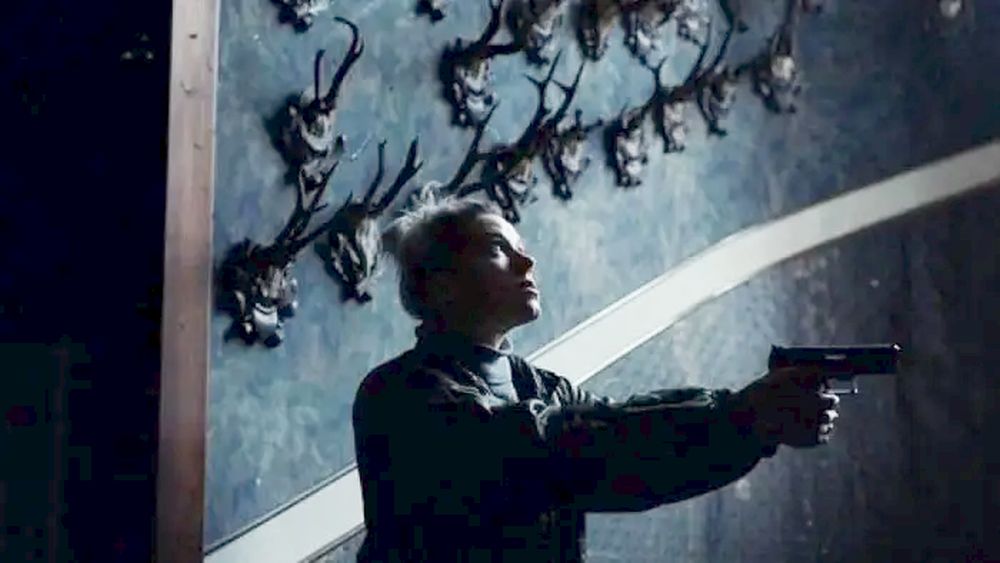 ★★★
★★★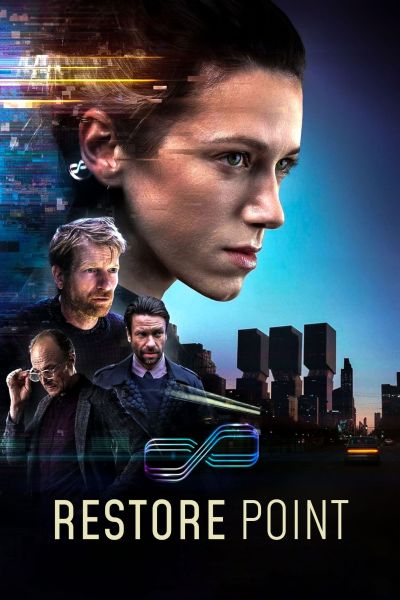 The above sounds a bit confusing. It may be at first glance, with a large number of characters with different interests popping up in the story. But once you have bought into the SF premise, things are actually not that complicated. What we have here is a crime thriller with cops, agents, terrorists and big money companies. It all leads to a well thought-out and very satisfying action-mystery, where for a long time you can’t be sure who is behind it all and why. Hint: it’s not who you may think. The solution was – at least for me – quite a surprise.
The above sounds a bit confusing. It may be at first glance, with a large number of characters with different interests popping up in the story. But once you have bought into the SF premise, things are actually not that complicated. What we have here is a crime thriller with cops, agents, terrorists and big money companies. It all leads to a well thought-out and very satisfying action-mystery, where for a long time you can’t be sure who is behind it all and why. Hint: it’s not who you may think. The solution was – at least for me – quite a surprise. Naomi (Ghenea) is sailing a schooner single-handed in the Caribbean, returning it from Antigua to Grenada so it’ll be ready for a charter customer to take out. Her boyfriend, Jackson (Westwick) has already gone ahead to prepare things there. But a squall diverts Naomi off course, and she then stumbles across boat wreckage to which Maria (Gómez) and Jose (Coppet) are desperately clinging. They tell her there’s still a survivor trapped on the sea bottom, and Naomi dives down to rescue Tomas from his watery tomb. However, on returning to the surface with him, she gets a nasty surprise and finds her work is not over. For the survivors were also transporting 200 kg of cocaine.
Naomi (Ghenea) is sailing a schooner single-handed in the Caribbean, returning it from Antigua to Grenada so it’ll be ready for a charter customer to take out. Her boyfriend, Jackson (Westwick) has already gone ahead to prepare things there. But a squall diverts Naomi off course, and she then stumbles across boat wreckage to which Maria (Gómez) and Jose (Coppet) are desperately clinging. They tell her there’s still a survivor trapped on the sea bottom, and Naomi dives down to rescue Tomas from his watery tomb. However, on returning to the surface with him, she gets a nasty surprise and finds her work is not over. For the survivors were also transporting 200 kg of cocaine.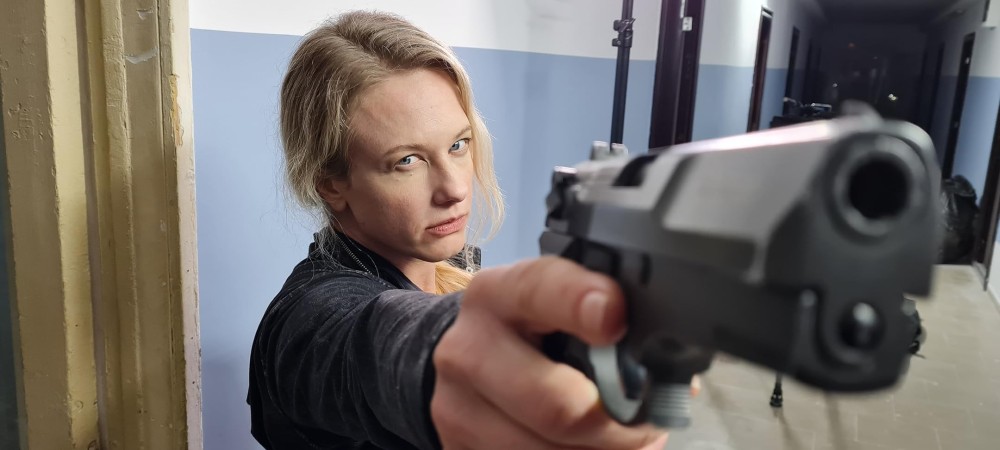 ★★
★★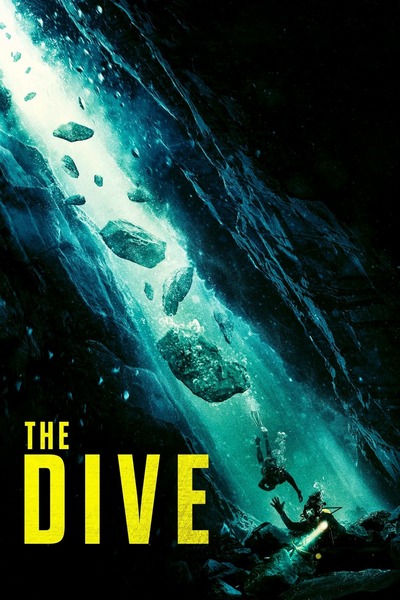 This is an English language remake of
This is an English language remake of  I was braced for this to be terrible, based on IMDb user comments which were either scathing, or came from accounts with one review – a sure sign they were astroturfed. On that basis, I guess I was pleasantly surprised. Don’t get me wrong: it’s not great, and only occasionally brushes against good. But it’s semi-competent, at least once the director calms the hell down, and stops giving us musical montages in lieu of content. The titular trio are
I was braced for this to be terrible, based on IMDb user comments which were either scathing, or came from accounts with one review – a sure sign they were astroturfed. On that basis, I guess I was pleasantly surprised. Don’t get me wrong: it’s not great, and only occasionally brushes against good. But it’s semi-competent, at least once the director calms the hell down, and stops giving us musical montages in lieu of content. The titular trio are